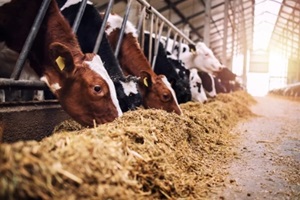
Dairy farms are the backbone of a large portion of the food industry; without milk, everything from breakfast cereal to cheese for restaurants would vanish. In many cases, the farms supporting these niches have been doing so for generations, passing their operation from parent to child.
When planning your operation and the dairy farm insurance you need, factoring in the challenges specific to multi-generational dairy operators is one of the smartest things you can do to prepare for the future. Keeping a dairy farm in the family helps farmers preserve their legacy and strengthen their brand.
However, every ownership transition poses risks in addition to the perils already facing the farming industry. Adequate insurance coverage is the best way to protect against what might go wrong. Here are some insurance insights for multi-generational dairy operators.
Understanding Dairy Farm Insurance
Every dairy farm should have overarching dairy farm insurance coverage. This type of protection secures assets and facilitates operational continuity by shielding against perils that may cause losses on the farm, such as lightning strikes and floods.
Many policies also cover issues such as accidental shooting or loss of animals to wildlife, such as wolves and bears. The cows are the heart of the operation, and anything that happens to them can threaten a farmer’s livelihood.
Always be sure to check the details of a specific insurance policy. For instance, some may cover accidents when cattle are being loaded or unloaded from a trailer, but not all will—and not all farms will need this protection, depending on their operation.
Types of Coverage for Dairy Farms
Every dairy farm is distinctive, from the number of heads to the final destination for the milk. This impacts what types of coverage are most important. However, in general, multi-generational dairy operators should consider the following insurance types as a baseline:
- Property Insurance – Property insurance for dairy farms secures the farm against financial loss if the farm’s tools or facilities are damaged or need replacement. Cows are large, powerful creatures, and they commonly destroy fencing or barns accidentally. Some insurance policies consider cattle head to be included in the owner’s property, meaning that if cows escape, the insurance policy can cover their value.
- Livestock Insurance – Even if a property insurance policy covers cattle, it does not address all of the things that can happen to them; that is what livestock insurance is for. This type of protection can compensate for cattle lost to shooting, animal attacks, electrocution, flooding, and accidents.
- Liability Insurance – All businesses should carry liability insurance, but dairy farms are especially in need. This protection covers the medical bills or repair costs if a third party is harmed on the farm or their property is destroyed by the cattle or the farm’s operations.
- Business Interruption Insurance – Every business plans to continue to meet quotas and operate on schedule. Still, in reality, this sometimes doesn’t happen. Whether due to a natural disaster, a cattle illness, or something else, business interruption insurance can cover basic costs such as property mortgage payments until the business can restart its operations.
Special Challenges for Multi-Generational Dairy Farms
Multi-generational dairy operators face many of the same challenges as other types of farms. However, they must also bear the brunt of additional roadblocks specific to a long-term family-owned establishment.

- Succession Planning – This establishes a smooth ownership transition by preparing ahead of time for how the business will change hands. Securing life insurance may be a part of this process, and farmers should always make sure the proper people are included in their dairy insurance policies so the transition can go smoothly.
- Financial Planning – The old guard must plan for the future to guarantee that successors know the farm’s practices and its finances. Where possible, save money for unexpected expenses and start the new generation on a solid economic footing.
- Technological Adaptation – Another reason to include successors in insurance decisions, even before becoming owners, is to make sure they stay at the top of their field as it evolves. New equipment or technology may necessitate new insurance policies, and granting successors access to make this decision can preserve the farm’s long-term viability.
Secure Your Business With Dairy Farm Insurance Burton & Company
Operating a multi-generational dairy farm is an achievement worth being proud of. Still, it comes with exclusive risks that should be carefully factored into a business’ overarching insurance and financial strategies.
The experts at Burton & Company can help you secure personalized insurance solutions for your dairy farm to support the next generation as they come into ownership. Contact Burton & Company to protect your investment now and in the future.

